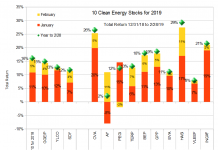Doug Young
 The number 94 seems to have special meaning for BYD (HKEx: 1211; 002594; OTC:BYDDF), the struggling car maker backed by billionaire investor Warren Buffett, which has just reported some preliminary data that show its profit last year fell 94 percent as it failed reverse its sharp decline of the last 2 years. But perhaps more alarming, this new data show the company’s operations fell into the loss column in the last 3 months of 2012, even though it technically remained profitable overall due to strong government support. That means that 2013 could continue to be a difficult year for the company, which could start reporting some net losses as it struggles to regain its footing in China’s competitive car market.
The number 94 seems to have special meaning for BYD (HKEx: 1211; 002594; OTC:BYDDF), the struggling car maker backed by billionaire investor Warren Buffett, which has just reported some preliminary data that show its profit last year fell 94 percent as it failed reverse its sharp decline of the last 2 years. But perhaps more alarming, this new data show the company’s operations fell into the loss column in the last 3 months of 2012, even though it technically remained profitable overall due to strong government support. That means that 2013 could continue to be a difficult year for the company, which could start reporting some net losses as it struggles to regain its footing in China’s competitive car market.
When I first looked at the newly issued report, the 94 percent profit drop in 2012 actually looked slightly encouraging. (earnings announcement) That’s because BYD also reported a 94 percent drop in its third quarter profit and a 94 percent drop for profit in the first 9 months of the year, meaning the fourth-quarter profit also fell by 94 percent. Such massive drops certainly aren’t anything to be proud of, but at least they show some stability and didn’t get worse over the year.
But a closer look at this new data reveals that BYD’s posted an operating loss for the year of 320 million yuan, or about $50 million. That loss contrasts sharply with the 33 million yuan yuan operating profit in the first 9 months of the year, meaning BYD’s operations slipped sharply into the red in the fourth quarter with a 350 million yuan operating loss.
I suspect the only reason that BYD managed to post a net profit in the fourth quarter and for all 2012 was because it receives generous support from Beijing and its local government in the southern city of Shenzhen, which are both strong backers of its campaign to develop green energy cars and buses.
In one of the few slightly encouraging signs, BYD said the rapid deterioration in its operating profit was due to weakness in its solar energy business, as well as its older cellphone component business. By comparison, it said business at its car unit was stable as it introduced some promising new models to the market.
So, what kind of conclusions can an observer bring away from all of this? The answer is probably that BYD will continue to struggle for the forseeable future, probably at least the next couple of years. Its newer models appear to be gaining some traction, so perhaps we could see some improvement in its car sales after 2 years of sharp declines. But the solar business will continue to struggle, and stiff competition in the cellphone space will also continue to hurt that part of the business.
The biggest factor to watch will be the company’s electric vehicle (EV) program that is both its biggest asset and its biggest liability due to the uncertainty of the future of alternative energy vehicles. After trying unsuccessfully to promote its EVs to general consumers, BYD has shifted to a strategy of targeting big buyers, mostly local governments, with pilot programs for its electric taxis and buses.
Many of those programs have just begun over the last year, so we should see later this year if the buyers like the product and start to expand their EV fleets. New EV orders by existing customers will be an encouraging sign if they come, but it will still probably be at least 2 years before EV sales make a meaningful contribution to BYD’s business. In the meantime, look for the company to struggle, and for its stock to stagnate until it has some more positive news for investors.
Bottom line: BYD will continue to struggle for the next 2 years and could even fall into the loss column, as its traditional businesses stagnate and its EV program tries to gain traction.
Doug Young has lived and worked in China for 15 years, much of that as a journalist for Reuters writing about Chinese companies. He currently lives in Shanghai where he teaches financial journalism at Fudan University. He writes daily on his blog, Young´s China Business Blog, commenting on the latest developments at Chinese companies listed in the US, China and Hong Kong. He is also author of a new book about the media in China, The Party Line: How The Media Dictates Public Opinion in Modern China.








